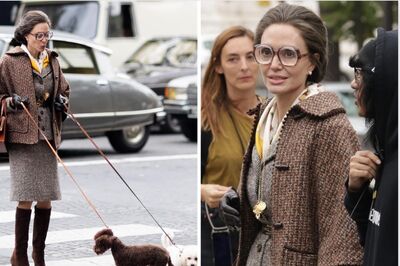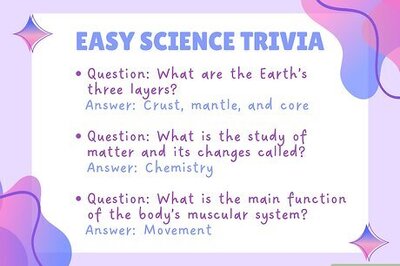
views
New Delhi: In a unanimous decision, a five-judge bench of the Supreme Court on Saturday gave the possession of the entire 2.77 acre disputed land to Hindu parties in the Ram-Janmabhoomi-Babri Masjid case.
The verdict came after the Constitution bench, headed by Chief Justice Ranjan Gogoi, recognised that possession of the disputed land was “a matter of contestation” given the riot of 1934 and disturbances in 1949.
The riot happened in Ayodhya after an incident of cow slaughter reported in the town led to the Hindus inflicting damage on the now-demolished Babri Masjid. The then British government had imposed a large fine of Rs 84,000 on the Hindus of the area.
The entire amount was paid by an elderly women on behalf of the Hindus that led to the settlement of the dispute. The money was used to repair the broken structure.
The apex court’s mention of the disturbances of 1949 takes us back to the night between December 22 and 23, 1949, when an idol of Lord Ram was installed in a ceremony in the central dome of the structure.
Soon after, the-then sub inspector of Ayodhya, Ram Dev, had filed a FIR under charges of trespassing and installation of the idol.
The city magistrate of Faizabad, Markenday Singh, had passed a preliminary order under Section 145 of the CrPC directing both Muslims and Hindus to appear before him on January 1, 1950.
This incident in 1949 had led to the filing of a civil suit by Gopal Singh Visharad in the court of civil judge, Faizabad, on January 16, 1950, seeking permission for worship without obstruction and permanent ban on removal of idols.
The matter snowballed in 1959 when the Nirmohi Akhara filed a suit claiming that the entire structure be transferred to it as it was a temple and not a mosque. In 1961, the Sunni Waqf Board filed a petition demanding that Babri Masjid be handed over to it.
In the final verdict, the Supreme Court has decided that Hindus will get the disputed land subject to conditions. The central government will frame a scheme to form a trust, which will manage the land. The trust has to be set up within three months, the court has said.
Under Article 142, the Supreme Court directed the Centre to give representation to the Nirmohi Akhara in the scheme. Also, a suitable plot of land measuring 5 acre shall be given to the Sunni Waqf Board either by the state or Centre.




















Comments
0 comment